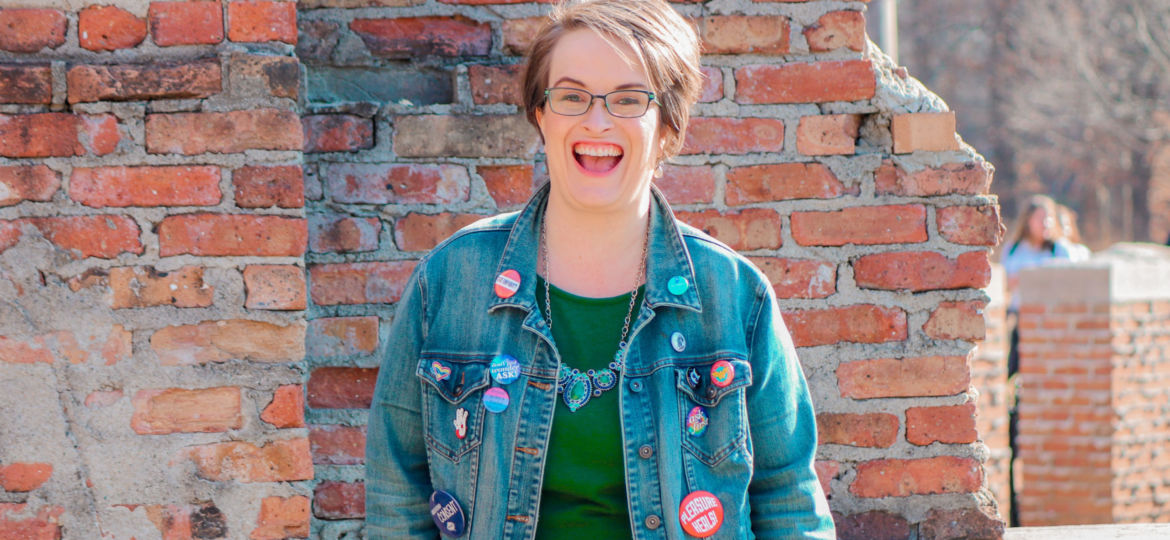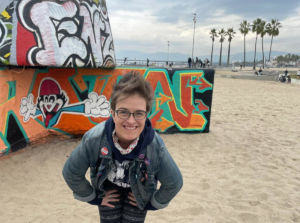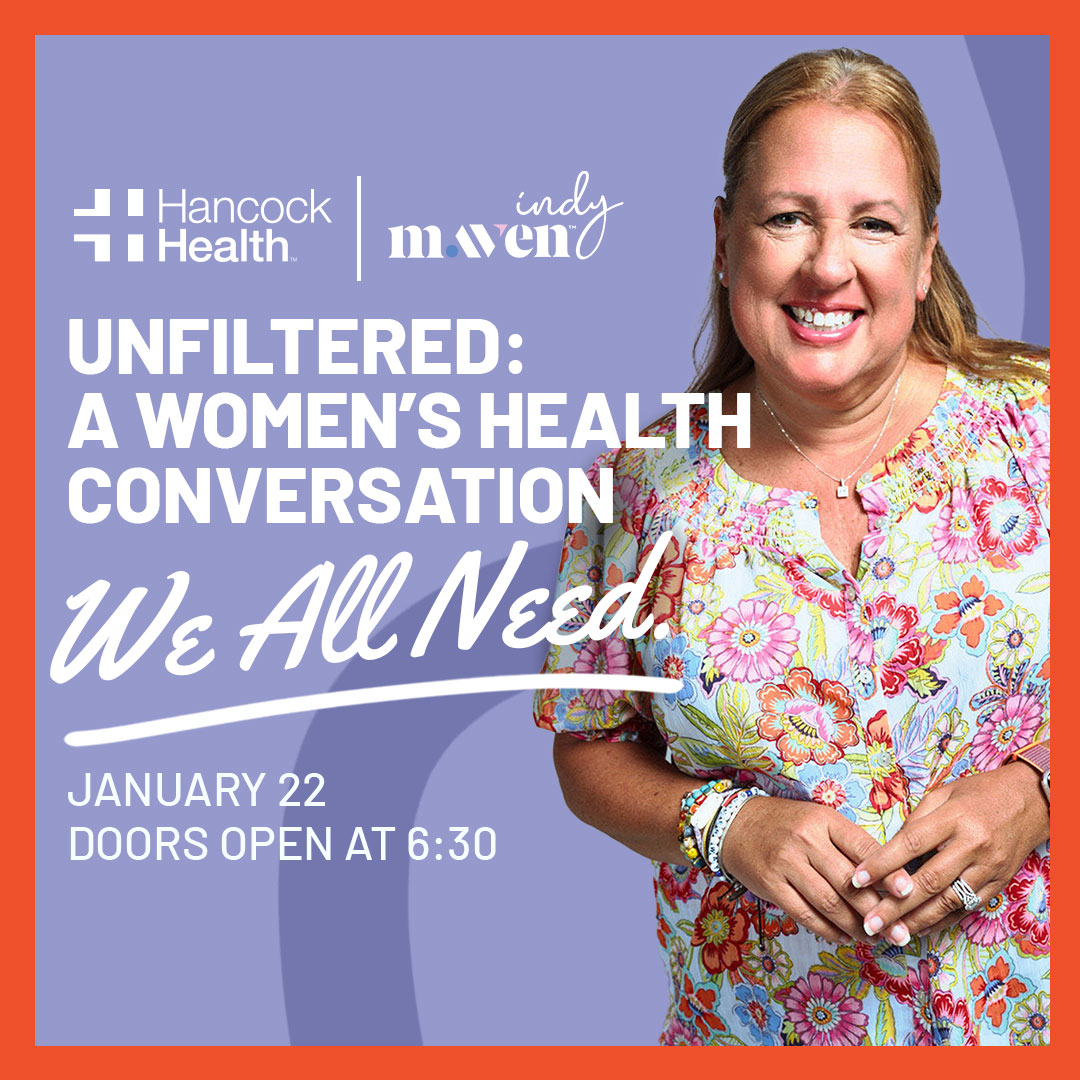
Want to see shit get real at a dinner party? Bring up the topic of ethical polyamory. Polyamory comes from the Greek word “poly,” meaning many, and the Latin word “amor,” meaning love. Those in a polyamorous relationship have a romantic and/or sexual relationship with more than one person—and yes, being polyamorous is different from practicing polygamy.
When people talk about ethical polyamory, the word “ethical” is added to make it very clear that this version of non-monogamy differs from cheating and being deceitful to your partner. In ethically polyamorous relationships, all of the partners involved are aware of the dynamic and explicitly consent to their partners either dating or having sex outside of the relationship.
To find out more about what exactly ethical polyamory entails, we chatted with Kathy Slaughter, LCSW, a renowned Indianapolis-based sex therapist, speaker, and the owner of Soaring Heart Counseling. Whether you are interested in exploring more about your sexuality or want to apply the principles of open communication to your monogamous relationship, Kathy’s insights are worth reading. (And there is also some talk about sex parties at the end, gasp!)
How did you first become aware of the idea of ethical polyamory?
Well, 20 years ago, I was a practicing Catholic and a registered Republican and I thought I was straight. And as I got on through college, I realized that wasn’t the case. And I still didn’t do much to explore it because I was still very much devoted to being a good Catholic kid. I was another good Catholic kid who got hold of some more open-minded science fiction material. Sci-fi novels are where a lot of open relationship energy first came from.
For example, read some of the work by Robert Heinlein; he’s a science fiction author (who wrote “Starship Troopers,” among many other titles). In his fictional novels, he writes about people who are living in open relationships, and so a whole generation of nerds got exposed to this way of thinking about relating simply through the fiction they were reading. And I joined the adventure, not too long before it really hit mainstream awareness. It was something I had talked about intermittently for years before I actually decided to go for it in 2013.
Why did you become involved in ethical polyamory?

I’ve been open about my professional involvement in, and my professional interest in, working with this community since about 2012 or 2013, because I was open to it philosophically.
It’s always struck me as a bit peculiar that we have no second thought that a child loves all of their grandparents and that parents love all of their children and we have multiple kinds of friendship. But oh, this one thing, this one romantic love, is only valid if it’s exclusive with this one person. Yeah, right.
Never mind that we’ve all been with one person over and over, on repeat, and the divorce rate is 50%. And as part of becoming a therapist, I learned about working with couples and learned that even in that industry, we don’t really know a whole lot.
We know more than we did 20 years ago, but I’ve been in the field for 15 years, so as I was getting trained, a lot of these old perspectives were coming apart, and new understandings were emerging. And so it was just kind of like, from my perspective, “Well, no one’s really quite got this relationship thing figured out, and there are interesting people embracing a completely different framework for intimate relationships, so let’s just see what that’s about.”
And that’s where all of this came from for me, because I was looking for a framework. No way of thinking about relationships made sense to me. And ethical polyamory is how I got to mine. I think a lot of what I teach about ethical polyamory can be extended out to other forms of relationships; I’ve learned them within this arena, but they are not specific to this arena.
What does the term “ethical polyamory” mean to you?
I would say what it means to me at this point, there’s a lot of room for discussion, and for reasonable people to disagree. Because, in some ways, polyamory, or the practice of being in multiple relationships at once, is incredibly old, especially if we look at indigenous and African traditions. But here within the Western American context, it’s really only about 30-odd years old, in its current contemporary iteration.
So, there’s a lot we’re still figuring out as a community, as a collective, and as people who have a shared common interest in doing these relationships well. But for me, and especially after a conference I put together last summer, there are the basics of looking at yourself first and understanding who you are and what your values are, and what it takes for you to feel loved and feel satisfied in a relationship. Because if we don’t start with ourselves, we can get into bad patterns and bad ways of communicating.
It can be hard to find your way through, because once you say “Okay, I’m not monogamous,” the options before you at that point are legion, and your best guiding light is yourself. And so I think it’s a real invitation to jump in there and know who you are—if you have the courage to do so. Because the more self-awareness we have, the more we know why we do what we do or why we react the way we react, and the more we can negotiate being in connected, authentic, abundant relationships with others. There’s a vertical axis to work on before we can go outward and into the horizontal axis.
How does consent play into ethical polyamory?
I understand consent to relate to people’s bodily autonomy, and also their time and energy, as well as their material possessions. So for me, basically any human interaction is grounded in consent.
A lot of the ways that you have to learn how to communicate when you’re trying to negotiate multiple partners at the same time really benefit from moving towards consents and direct communication styles, which is not how most of us Midwesterners grew up. So all of those toxic, passive-aggressive, “family of origin” bullshit ways to communicate that we’ve all learned, are included, I suppose. They just don’t work very well once all of the assumptions have been taken off the table.
So, in addition to being about knowing yourself and working on your own rough spots, your strengths, and then thinking about concerns, ethical polyamory to me is also about direct communication and learning how to use that self-awareness and that consent to be clear about what you want and clear about what your limits are.
When we first get into having multiple partners, it’s kind of trippy and intoxicating, and it’s easy to get swept up in it. And that’s why consent and communication are so important. It’s amazing to me what human beings can adapt to as long as they feel like they know what’s going on.
If someone is interested in polyamory, what do you recommend they do to investigate that interest?

Oh, all the reading and all the podcasts. At this point, there’s actually quite a bit of material out there. The whole situation has just gotten really huge over the last seven to 10 years. It’s pretty exciting. There are a lot more resources out there than there used to be, but my favorite book to recommend to people who are thinking about it is called “Opening Up” by Tristan Taormino, and it’s basically the starter manual. It goes through all of the different relationship styles one could choose from, and then the second half of the book goes through some functional, everyday kinds of challenges, so it’s a really good nuts and bolts intro.
My Facebook group Ethical Polyamory Adventures is a great place for folks who’ve kind of started to get their feet wet but are looking for a community to talk to about the parts that seem stretchy or difficult or confusing.
Jessica Fern also wrote a fantastic book about secure relationship formation called “Polysecure: Attachment, Trauma and Consensual Nonmonogamy,” and I would argue that it’s a good book for everybody.
Even if someone is not interested in polyamory, are there aspects of the practices or principles that can be applied to a monogamous relationship to help strengthen it?
Yes, absolutely. One of the things that I believe to be a truly good lesson is the fact that having some space in your relationship is a good thing.
I think especially when we’re young, and potentially still more informed by Hollywood than by lived experience and relationships, we can accidentally get pulled into this idea of doing everything together and barely spending any time apart, and for some people, being that entwined works for them. But for a lot of us that doesn’t work, and a big piece of what suffers is the erotic edge.
Esther Perel talks about how eroticism is this drive to close the gap between yourself and your beloved, and so if you and your beloved are doing everything all day, every day together, there’s less of a gap to close, and that spark is going to die.
And so, sometimes when we’ve been entwined with somebody and one person wants to go and do their own thing, that can feel really threatening and sometimes scary. But the sexuality research and the lived experiences of people in open relationships say that your partner spending time away from you can actually enrich your relationship and increase the erotic energy. There is a value to having both time together and time apart, no matter what relationship style you’re pursuing.
You once gave a TED TALK where you mentioned “New Relationship Energy” (NRE). Can you explain a little bit about what it is and how it can potentially affect our romantic relationships?
New relationship energy is another concept where I’m like, “Oh my goodness, I was retaught!”
New relationship energy is not remotely restricted to polyamory. I’m personally not even convinced that it’s restricted to romantic relationships. But it is based on observations of neuron activity in the brain and our understanding of neurochemistry as much as that’s still in its infancy.
What we know is that when we first connect with someone, especially when the connection has a romantic or an erotic edge to it, that sets off a chemical reaction in our brain as part of the bonding process, where we release oxytocin, dopamine, and serotonin, which are basically all of the feel-good and bonding chemicals our brain is capable of producing. And every time we spend time with this person, that process happens. And if that connection is happening on both sides, it’s happening for both people. So this is what we see with that first euphoria of our friend finally meeting a nice guy on Tinder, and then you can’t get ahold of her for three weeks.
That’s new relationship energy because every time she interacts with him, she’s getting that happy, totally natural endorphin rush. It’s a cool process, and I love new relationship energy. It’s heavy and it’s euphoric, and it feels good. The problem is, it is very, very powerful. And so if you’re not aware that it’s happening, you can get yourself into something too serious too quickly.
How long does New Relationship Energy usually last?
It seems to last anywhere between three months to two years. And there’s some anecdotal evidence of longer than that.
The evolutionary psychologists would say this is so that we can come together and get pregnant and then the relationship holds until the child is walking, but when relationship counselors talk about it, what we’re looking for is how did this couple navigate the transition from this new relationship energy, feeling the connection and the drive to be together and developing intimacy, into a more stable form of attachment and affection? And is that drive still there? Couples who struggle typically didn’t make that transition very well.
I think it’s important to say that if you’ve just met somebody and you’re still in that first six months and you’re already fighting and having issues—this is not good news. The first six months are as good as it’s going to get.
You are currently holding an Ethical Polyamory Apprenticeship, can you explain more about what that apprenticeship entails?
The apprenticeship is built for folks who are at the jumping-off point, like Bilbo Baggins finally deciding to take that last plunge out his front door and go dashing off down the road not knowing where the road may lead. You might have been on the road for a while, but you still probably haven’t made it to Rivendell, or maybe you’re like, “Now what do I do?” These are the people that the program is designed for. They are roughly in that zero (in most folks’ cases) to two or three years into practicing polyamory.
The apprenticeship is designed to create an intimate container to explore the ethical relating principles I was talking about earlier. And also, a safe space where you can practice saying “yes” or “no” and get it wrong, and we’ll all laugh and talk about how you could have phrased it better, and then move on. Instead of walking into your first play party and being like, “Oh, man, I know I’m supposed to use this consent thing, but I’m really not sure how to do that because it’s really scary.”
Whoa, you just mentioned a “play party,” and that’s news to me. What’s a play party?
A play party, broadly speaking, is a cross-community term for a social gathering where sex could break out, and probably will. Sometimes they’re explicitly framed as play parties, and sometimes some social gatherings just go that way. In kink terms, that would definitely be referring to a gathering of BDSM practitioners who intend to play.
Are these play parties common in Indianapolis?
That’s a hard metric for me to answer because relative to larger communities, especially on the East Coast or the West Coast that I’m connected to, I would not say they are common. But, they are probably more frequent than most people would suspect. There are two or three different clubs that I know of within Indianapolis that are open every weekend.
Stephanie Groves is the Executive Editor of Indy Maven, and just in case anyone is curious, she has never had a polyamorous relationship, but she has been totally sucked in by New Relationship Energy before.
All of our content—including this article—is completely free. However, we’d love if you would please consider supporting our journalism with an Indy Maven membership.





